As cryptocurrencies and blockchain assets continue to grow in popularity and mainstream adoption, the United States Internal Revenue Service has taken an increasing interest in their taxation.
In the U.S., cryptocurrency is subject to crypto tax and is classified as transactions instead of property or assets. Needless to say, failure to accurately track and report these transactions can result in penalties and fines.
Here is a comprehensive crypto tax guide for tracking and reporting crypto transactions for tax purposes in the United States.
How cryptocurrency is taxed in the U.S.
In the U.S., if you invest in crypto assets, such as nonfungible tokens (NFTs), and transact further for gains, you must be ready for crypto taxation.
Note that buying crypto alone — or its rise or fall in value while it is in your portfolio — isn’t taxable. Taxes are due when you sell, invest or dispose of the asset in any way for gains.
Cryptocurrency is subject to taxation in two ways: capital gains tax and income tax.
Capital gains tax
This applies to profits earned from the sale of an asset that was purchased at a lower price. Any gains realized from selling or trading a digital asset for a higher price than purchased are subject to capital gains tax.
If crypto assets were held for less than a year, it is considered a short-term gain. If it was held for more than a year, it is regarded as a long-term gain.
Capital gains events include selling cryptocurrency for fiat currency and sending cryptocurrency (over $15,000) as a gift.
Additionally, purchasing goods and services with cryptocurrency is also considered a capital gains taxable event. Trading or swapping one digital asset for another is also considered a capital gains event. This includes purchasing NFTs with cryptocurrency.
As such, it is crucial to accurately track all crypto transactions for tax purposes. That said, declaring your capital losses can offset capital gains tax.
Income tax
Income tax on cryptocurrency transactions applies to earnings from the mining and staking of tokens. These include receiving cryptocurrency from an airdrop or any crypto interest earnings from decentralized finance (DeFi) lending.
Also, receiving cryptocurrency as a means of payment for labor is also considered an income tax event.
Long-term cryptocurrency tax rates
The IRS’ long-term cryptocurrency tax rates will apply to gains on cryptocurrencies that have been held for over a year.
For single individuals, no tax would be levied on crypto gains of up to $44,625. For individuals filing as heads of household or married people filing jointly, the rates range from 0% to 20% based on income tax brackets.
See the table below for more details:
Short-term cryptocurrency tax rates
For short-term crypto gains — i.e., gains on cryptocurrencies held for 365 days or less — the tax rates will be calculated as ordinary income tax rates.
As shown in the table below, they range from 10% to 37% based on income brackets for single filers, married couples filing jointly, and heads of household.
When is cryptocurrency not taxed?
Some cryptocurrency transactions that are not subject to either capital gains or income tax:
- Purchasing cryptocurrency with fiat currency
- Holding cryptocurrencies without selling them
- Moving cryptocurrency between your own cryptocurrency wallets
- Gifting cryptocurrency amounting to less than $15,000
- Donating cryptocurrency to charities (in fact, this may be tax deductible)
- Creating an NFT (unless it is sold).
How to track crypto transactions
It is essential to accurately track and report all cryptocurrency transactions and consult a tax professional to meet all obligations. For some, it may just be a matter of screenshotting the few crypto transactions they’ve made all year. For others, recording crypto transactions across all Web3 ecosystems can be an arduous affair.
Several purpose-built crypto tax software solutions are available for tracking and generating reports for cryptocurrency transactions. Popular options include Koinly, CoinLedger and Accointing.
If you prefer to do it all yourself, here’s a step-by-step guide to tracking and reporting crypto transactions:
- Identify and organize all of your cryptocurrency transactions, including trades, purchases and sales. Make a list of the type of cryptocurrency or asset, the date of the transaction, the amount and the value at the time of the transaction. It’s also a good practice to note the relevant wallet addresses.
- Calculate the cost basis for each transaction, which includes the purchase price, fees and any other costs incurred.
- Determine the gain or loss on each transaction, which is the difference between the cost basis and the fair market value of the cryptocurrency at the time of the sale or trade.
- Separate your short-term and long-term transactions based on whether you’ve held the crypto asset in question for less than a year (short-term) or longer than a year (long-term).
By keeping accurate records and staying informed on the latest tax guidelines, you can easily navigate the tax implications of your cryptocurrency investments. While there are still many “undefined scenarios” as it pertains to taxing crypto, the IRS is continually working to cover them.
Reporting crypto holdings on your taxes
After accurately tracking your crypto transactions, you must send them all to the IRS for tax purposes.
Reporting capital gains and losses
The crypto tax Form 8949 is used to report the sales and disposals of capital assets, including cryptocurrencies. It consists of two parts: Part I for short-term disposals and Part II for long-term disposals.
You need to check the relevant box at the top of the sheet based on whether your transaction was reported on Form 1099. Crypto tax Form 1099 B — supposed to be issued by exchanges — is used to report various types of income received throughout the year, including income from stock investments and cryptocurrencies.
However, as most exchanges do not issue Form 1099-B for cryptocurrency transactions, you will likely need to select option C (on Form 8949), which applies to short-term transactions that were not previously reported.
To fill in the details on Form 8949, you’ll need to provide the following information:
- A description of the crypto asset sold
- The date you originally acquired it
- The date you sold or disposed of it
- The fair market value
- The cost basis
- The gain or loss.
Each of these pertains to each column in Form 8949 (as shown below):
Once Form 8949 is filled out, you must take the total gain (or loss) and mention the same on Schedule D of Form 1040.
Reporting crypto income
The most common form for individual income tax returns in the United States is Form 1040. You must report all crypto income on your 1040, along with capital gains or losses from crypto transactions.
Form 1040 has a crypto question: “At any time during 2022, did you: (a) receive crypto as a reward, award, or compensation; or (b) sell, exchange, gift, or otherwise dispose of a digital asset?” Withholding information or any form of dishonesty constitutes tax fraud.
Earning crypto as a business entity via payments for labor, running a mining income operation, or tapping into staking income are treated as self-employment. They must be reported in Schedule C of Form 1040.
When it comes to reporting crypto income from airdrops, forks or other sources, such as wages and hobby income, it is usually recorded as “other income” on Schedule 1 of Form 1040.
One may consult a tax professional for guidance on filing your cryptocurrency taxes accurately and reporting them correctly on your tax return.
This article does not contain financial, tax, investment advice or recommendations. Every investment and trading move involves risk, and readers should conduct their own research when making a decision.
 BTC
BTC  ETH
ETH  USDT
USDT  BNB
BNB  SOL
SOL  USDC
USDC  XRP
XRP  DOGE
DOGE  TON
TON  TRX
TRX 

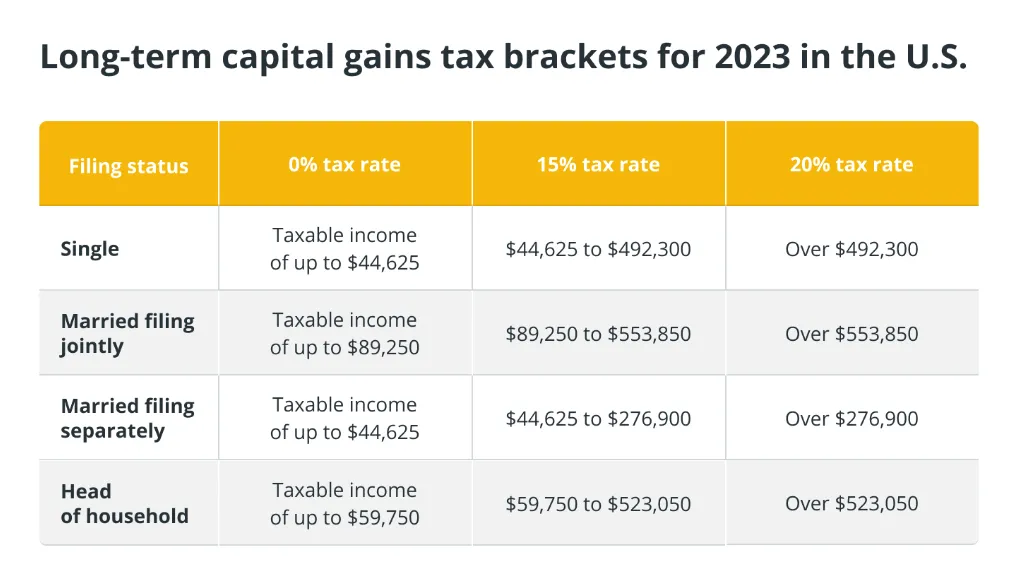
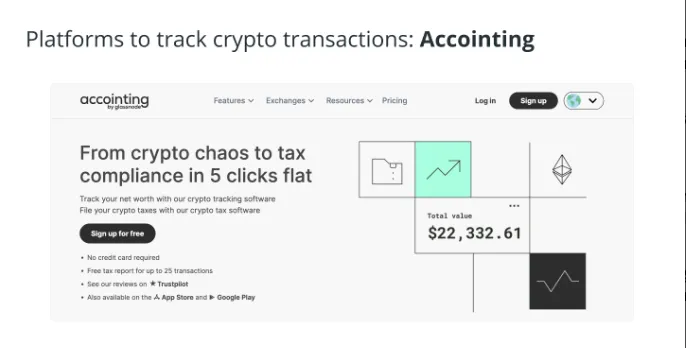
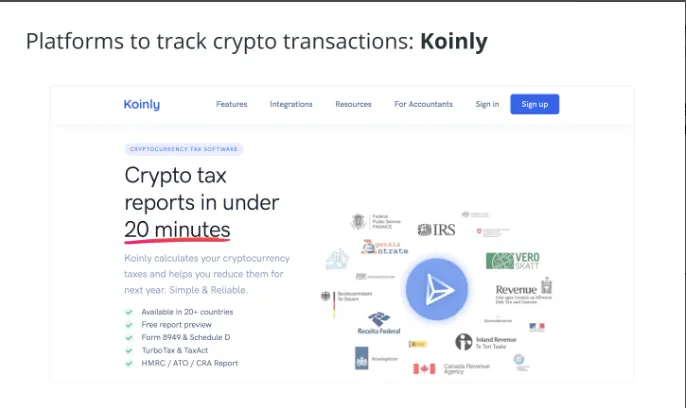
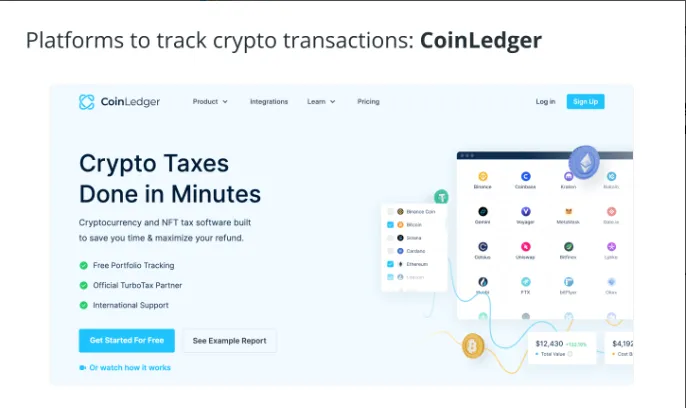
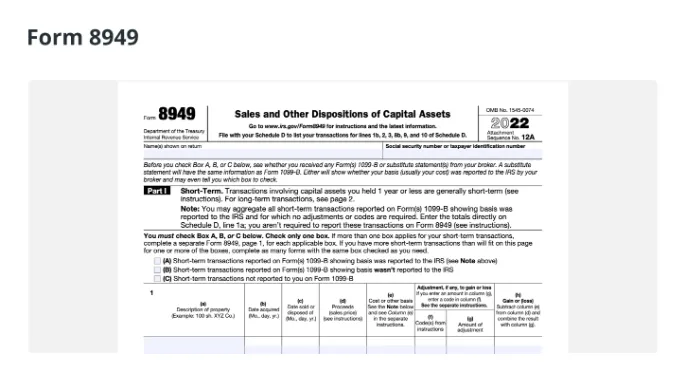
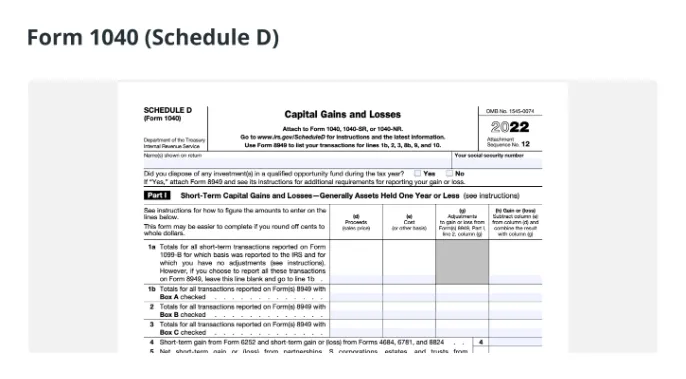
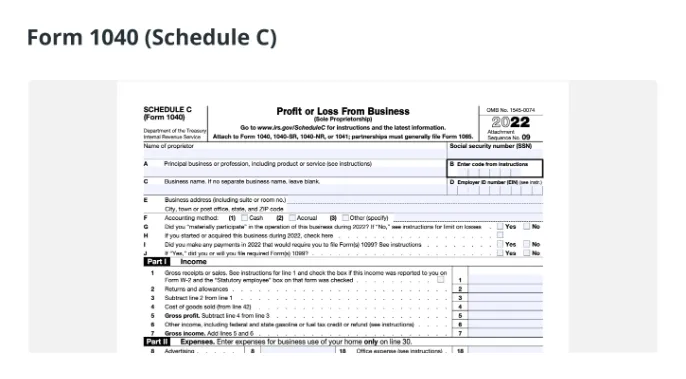
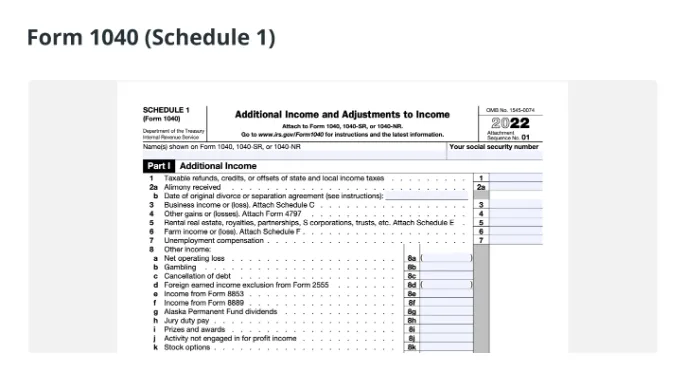





TornadoCash: Your shield against surveillance on the blockchain. Explore the power of privacy with decentralized transactions
TornadoCash: Where privacy meets decentralization. Keep your Ethereum transactions confidential with this innovative protocol